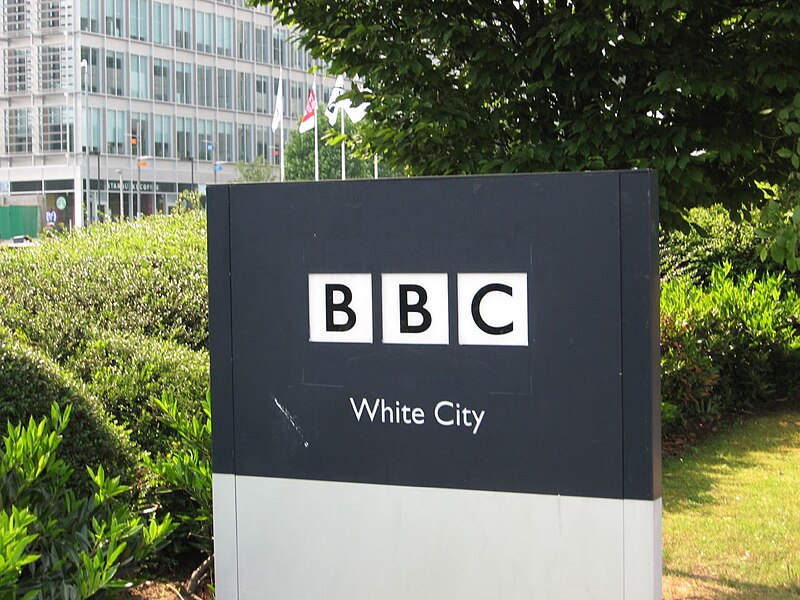The BBC violated its own editorial guidelines 1,553 times during the four-month period beginning October 7, 2023, repeatedly downplaying Hamas terrorism and presenting Israel as an aggressor, according to an analysis released over the weekend and reported by the Telegraph.
“The findings reveal a deeply worrying pattern of bias and multiple breaches by the BBC of its own editorial guidelines on impartiality, fairness and establishing the truth,” the report said.
British lawyer Trevor Asserson, who runs Israel’s largest international law firm, Asserson Law Offices, and who has long campaigned against BBC bias, led the research.
He launched an organisation last week called Campaign for Media Standards to expose bias across UK media.
Asserson was joined by a team of about 20 lawyers and 20 data scientists. Artificial intelligence was also used to analyse nine million words of BBC output.
According to the report as described in the Telegraph, some journalists used by the BBC to cover the current Israel-Hamas war previously showed sympathy for Hamas and even celebrated its terrorism.
Jeremy Bowen, the BBC’s international editor, excused Hamas’s terrorist acts and Lyse Doucet, the BBC’s chief international correspondent, downplayed the October 7 attacks on Israel, it claimed, according to the Telegraph.
Researchers also analysed the BBC’s coverage of the four months following October 7 to assess its portrayal of war crimes.
“Hamas members filmed and publicised themselves committing acts which appear to constitute war crimes,” the report said, including the taking of hostages, wilful killing or murder, torture or inhuman treatment and rape or sexual violence.
But despite this, the report’s analysis of BBC coverage found that Israel was associated with war crimes four times more than Hamas (127 versus 30), with genocide 14 times more (283 versus 19) and with breaching international law six times more (167 versus 27).
The report censured especially the public broadcaster’s BBC Arabic channel, describing it as one of the most biased of all international media outlets in its coverage of the Gaza war.
It noted 11 cases in which BBC Arabic featured reporters who had previously made public statements in support of terrorism and Hamas.
Danny Cohen, a former BBC executive, said that there was an “institutional crisis” at the national broadcaster. He called for an independent inquiry into its Gaza war coverage.
The Campaign Against Antisemitism and the National Jewish Assembly also called for an independent review, The Telegraph said.
Sir Oliver Dowden, shadow deputy prime minister, said, “The BBC is one of the premier news services in the world, and to hear that standards may be slipping in such a severe way like this, risks tarnishing the reputation of our news service.
“Serious questions should be asked as to why this has been allowed to happen, and license-fee payers should expect to see the BBC stick to its own editorial guidelines,” he said.
Following the October 7 massacre, the BBC was condemned for failing to call Hamas members “terrorists.” In late October the BBC said it would describe Hamas “where possible” as a “proscribed terrorist organisation.”
However, the report was said to have found that Hamas was described as a “proscribed,” “designated” or “recognised” terrorist organisation just 409 times (3.2 per cent) out of 12,459 mentions over the four-month period.
Greg Smith, a Conservative Party member serving as both transport and business minister in the shadow government, said: “We knew in the aftermath of October 7 that the BBC was struggling to call a terrorist a terrorist.
“There are now clear grounds for Ofcom [the Office of Communications] and the Department for Culture, Media and Sport to use every tool they have in their arsenal to bring about greater compliance with the rules around neutrality and fair coverage in the BBC charter,” he said.
The BBC said it would “carefully consider” the report, which has been submitted to its director general, chairman and other board members, but a spokesman for the corporation has already criticised the research.
A BBC spokesman said: “We have serious questions about the methodology of this report, particularly its heavy reliance on AI to analyse impartiality, and its interpretation of the BBC’s editorial guidelines. We don’t think coverage can be assessed solely by counting particular words divorced from context.
“We are required to achieve due impartiality, rather than the ‘balance of sympathy’ proposed in the report, and we believe our knowledgeable and dedicated correspondents are achieving this, despite the highly complex, challenging and polarising nature of the conflict.
“However, we will consider the report carefully and respond directly to the authors once we have had time to study it in detail.”
The BBC also denied allegations against its staff: “We strongly reject the claims that our reporters ‘celebrated acts of terror’ and we strongly reject the attack on individual members of BBC staff, all of whom are working to the same editorial guidelines.”
Lord Ian Austin, a former Labour Party minister, accused the BBC of “high-handed arrogance” for its ongoing dismissal of criticisms regarding its impartiality.
Lord Stuart Polak, honorary president of the Conservative Friends of Israel, said: “There’s a clear pattern. Other broadcasters have also made errors, but the BBC keeps getting it wrong. It’s shameful, it’s wrong and what’s worse — the BBC knows it.”
Austin said that after spending decades defending the BBC, he is now “convinced” that its coverage of the war “fails to meet the standards of impartiality and independence on which its public funding is based,” The Telegraph reported.









